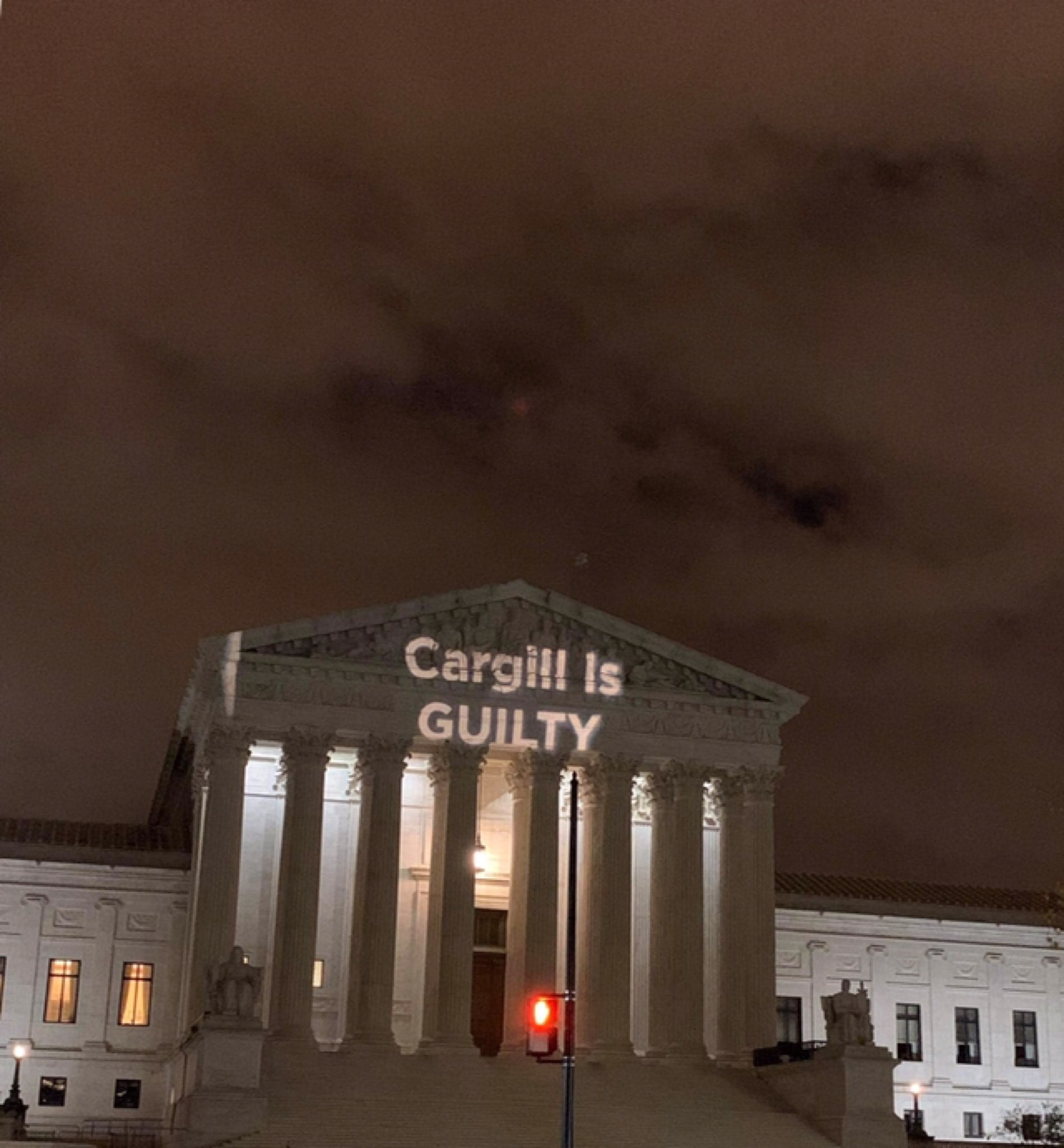
Supreme Court Must Hold Cargill and Nestle Accountable for Child Slavery
Today, lawyers representing former child slaves working in cocoa will argue before the U.S. Supreme Court in Nestlé USA, Inc. v. John Doe I and Cargill, Inc. v. John Doe I. Six children who were trafficked, enslaved and forced to harvest cocoa for the cocoa industry first sued Nestle and Cargill in 2005 under the Alien Tort Statute. After the Court of Appeals ruled for the second time that the case could move forward, the companies appealed the decision to the Supreme Court.
Last night, Mighty Earth staged a protest to help put Cargill’s abuses on the spotlight. Volunteers gathered in front of the Supreme Court and projected the message “Cargill is GUILTY”.
Today, in advance of oral arguments, Mighty Earth Campaign Director Etelle Higonnet released the following statement:
“Nestle and Cargill’s request to the Supreme Court is as simple as it is audacious: they are demanding immunity from international law for human rights violations. Rather than work to stop child slavery, Nestle and Cargill want legal immunity to continue profiting from it. If these companies win their case, it would set a dangerous precedent undermining the rule of law.
“The Roberts Court has long been a friend to big business, but is it really about to endorse an effort to legalize child slavery for corporations?
“As Americans rose up to protest for racial justice this year, Cargill CEO Dave MacLennan put out a statement purporting to ‘stand with all who have spoken up to say Black lives matter.’ Unfortunately, lip service to justice movements has been easier to deploy than meaningful efforts to definitively end child slavery and address other horrors in the company’s massive supply chain, including labor abuses, rampant deforestation, and the reckless use of dangerous pesticides that can be particularly harmful to the health of children still unjustly employed in cocoa.
“We call on Cargill and Nestle to abandon these harmful legal arguments for corporate impunity and establish meaningful, independent monitoring and certification systems that ensure no cocoa tied to social or environmental abuses enters their supply chains.”
Additional Resources
- Photos: Mighty Earth protest at the Supreme Court ahead of oral arguments
- Report: Cargill – The Worst Company in the World
- Press Release: Are Industry and Governments Watering Down New Cocoa Report Data to Downplay Persistent Child Labor and Farmer Poverty?
- Mighty Earth’s Cocoa Accountability Map and 2020 Chocolate Company Scorecard
- Case overview from Constitutional Accountability Center: Nestlé USA, Inc. v. John Doe I; Cargill, Inc. v. John Doe I


